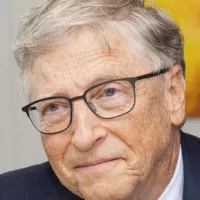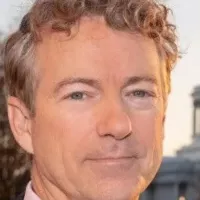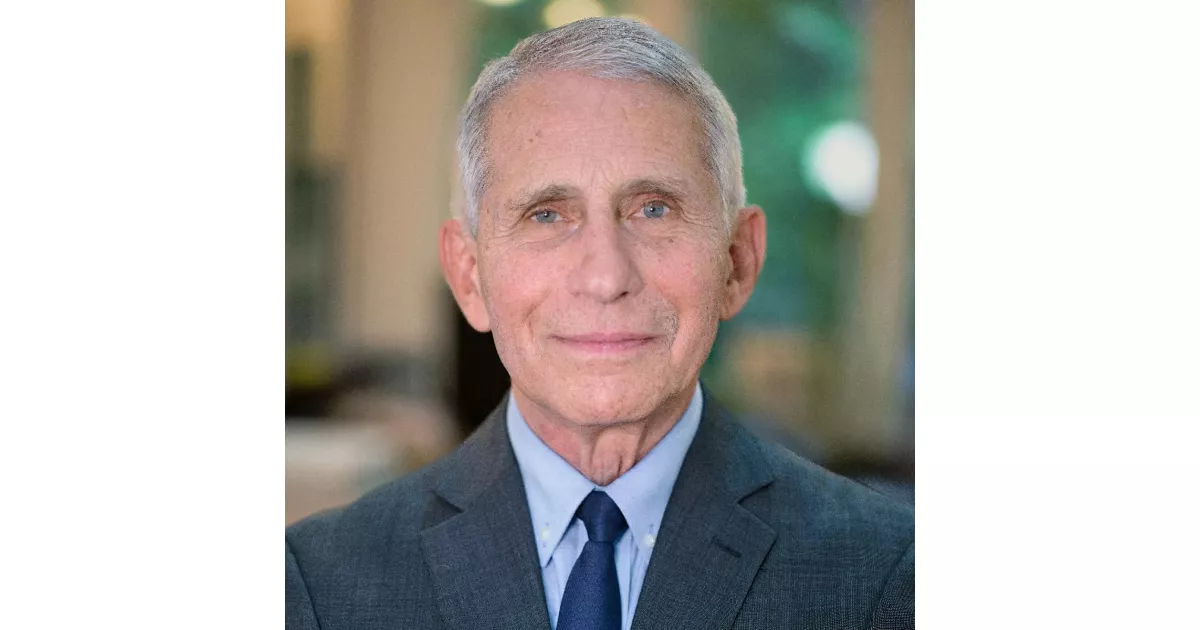Anthony Stephen Fauci is a prominent American physician-scientist and immunologist. He directed the National Institute of Allergy and Infectious Diseases (NIAID) from 1984 to 2022 and served as chief medical advisor to the president from 2021 to 2022. He is renowned as one of the most cited scientists globally (1983-2002). Fauci received the Presidential Medal of Freedom in 2008 for his significant contributions, notably his work on the AIDS relief program, PEPFAR. His career has been dedicated to researching and combating infectious diseases, making him a key figure in public health.
December 24, 1940: Fauci's Birth
Anthony Fauci was born on December 24, 1940, in Brooklyn, New York City.
1958: High School Graduation
In 1958, Anthony Fauci graduated from Regis High School.
1962: Holy Cross Graduation
In 1962, Anthony Fauci graduated from the College of the Holy Cross with a Bachelor of Arts degree in classics with a pre-med track.
1966: Cornell Medical College Graduation
In 1966, Anthony Fauci graduated with a Doctor of Medicine degree from Cornell University's Medical College.
1968: Joined NIH
In 1968, Anthony Fauci joined the National Institutes of Health (NIH) as a clinical associate in the National Institute of Allergy and Infectious Diseases's (NIAID) Laboratory of Clinical Investigation (LCI).
1974: Head of LCI Clinical Physiology Section
In 1974, Anthony Fauci became head of the LCI's Clinical Physiology Section.
1977: Fauci's Washington D.C. Residence Reported
In 2022, The Washington Post reported that Fauci has lived in the same house in Washington, D.C., since 1977, showcasing his long-term connection to the city.
1980: Chief of NIAID Laboratory of Immunoregulation
In 1980, Anthony Fauci was appointed chief of the NIAID's Laboratory of Immunoregulation.
1983: Paper on AIDS
In 1983, Anthony Fauci suggested "routine close contact, as within a family household," might spread A.I.D.S., but he corrected it within a year.
1984: Director of the NIAID
In 1984, Anthony Fauci became the director of the NIAID.
1985: Recognition for Treatment Advances
In 1985, Anthony Fauci's work on the treatment of polyarteritis nodosa and granulomatosis with polyangiitis was ranked as one of the most important advances in patient management in rheumatology over the previous 20 years by members of the American Rheumatism Association.
1985: Fauci marries Christine Grady
In 1985, Fauci married Christine Grady, a nurse and bioethicist with the NIH, after they met while treating a patient.
1986: Fauci becomes one of the principal editors of Harrison's Principles of Internal Medicine
In 1986, Anthony Fauci became one of the principal editors of Harrison's Principles of Internal Medicine, starting with the 11th edition. He was named on the front cover of the book.
October 1988: Protests at NIAID
In October 1988, protesters came to the National Institute of Allergy and Infectious Diseases, and Anthony Fauci bore the brunt of the anger from the LGBTQ+ community.
1991: Fauci inspires novel character
In 1991, author Sally Quinn credited Fauci as the inspiration for the love interest in her bestselling romance novel Happy Endings.
2003: Most-Cited Scientist
In 2003, the Institute for Scientific Information stated that from 1983 to 2002, Anthony Fauci was the 13th most-cited scientist among authors in all disciplines who published articles in scientific journals.
2008: Presidential Medal of Freedom
In 2008, Anthony Fauci was awarded the Presidential Medal of Freedom by President George W. Bush for his work on the AIDS relief program PEPFAR.
September 17, 2009: H1N1 Virus Prediction
On September 17, 2009, Anthony Fauci predicted that the H1N1 virus causing the 2009 swine flu pandemic could infect as many as one in three Americans.
January 1, 2014: Biden Pardons Fauci
On January 19, 2025, President Biden preemptively pardoned Fauci for any federal offenses he may have committed between January 1, 2014, and the day of the pardon, raising concerns about presidential clemency powers.
October 16, 2014: Ebola Virus Crisis Testimony
On October 16, 2014, Anthony Fauci testified in a United States congressional hearing regarding the Ebola virus crisis, stating that NIAID was still some distance away from producing sufficient quantities of cures or vaccines for widespread trials.
2015: Fauci receives an honorary degree
In 2015, Anthony Fauci received an honorary degree.
January 2020: White House Coronavirus Task Force
In January 2020, Anthony Fauci was a member of the White House Coronavirus Task Force.
February 29, 2020: Interview Statement
On February 29, 2020, Anthony Fauci stated in an interview that "at this moment, there is no need to change anything that you're doing on a day-by-day basis."
March 8, 2020: Statement on Masks
On March 8, 2020, Anthony Fauci stated that people who are not infected should not be walking around with masks in the United States, citing concerns about shortages for healthcare providers.
March 2020: Predicted Infection Fatality Rate
In March 2020, Anthony Fauci predicted that the infection fatality rate would likely be close to 1%, which was ten times more severe than the 0.1% reported rate for seasonal flu.
May 21, 2020: Fauci delivers guest remarks for the Johns Hopkins University Class of 2020
On May 21, 2020, Anthony Fauci delivered guest remarks for the Johns Hopkins University Class of 2020, offering his insights and experiences to the graduating students.
June 2020: Concerns About Protests
In June 2020, Anthony Fauci expressed concerns that protests against police brutality would cause "surges" in COVID-19 cases.
June 2020: Release of Fauci's Emails
In early June 2021, over 3,000 internal government emails sent by Fauci from January to June 2020 were obtained by media outlets through Freedom of Information Act (FOIA) requests, providing insight into the early COVID-19 response.
July 6, 2020: Opinion on COVID-19 Situation
On July 6, 2020, Anthony Fauci stated the country's situation pertaining to COVID-19 "is really not good", pointing to more than 55,000 new cases on July 4, 2020.
July 7, 2020: COVID-19 Death Rate
On July 7, 2020, Anthony Fauci stated that it was a "false narrative to take comfort in a lower rate of death" for COVID-19 in the country.
July 9, 2020: Trump's Opinion on Fauci
On July 9, 2020, President Trump publicly opined that Anthony Fauci "is a nice man, but he's made a lot of mistakes."
July 12, 2020: White House Concerns
On July 12, 2020, a White House official told media outlets that "several White House officials are concerned about the number of times Dr. Fauci has been wrong on things", passing to the media a list of purported mistakes made by Anthony Fauci during the outbreak.
July 2020: Advice to Avoid Crowds
In July 2020, Anthony Fauci advised the public to "avoid crowds of any type" amid the COVID-19 pandemic.
September 23, 2020: Fauci Defends COVID-19 Mitigation Recommendations
On September 23, 2020, during a Senate hearing, Dr. Fauci defended the CDC's COVID-19 mitigation recommendations, including social distancing and mask-wearing, against Senator Rand Paul's questioning, citing that the recommendations remained valid.
October 2020: Fauci objects to Trump campaign ad
In October 2020, Fauci objected to the Trump campaign using his words in an advertisement, stating that his words were taken out of context and he had never made a political endorsement. He clarified that he was referring to how hard the Coronavirus Task Force was working.
October 18, 2020: Fauci Comments on Trump's COVID-19 Diagnosis
On October 18, 2020, Dr. Fauci mentioned that he "wasn't surprised" that Donald Trump contracted COVID-19. This occurred amidst ongoing discussions about the administration's handling of the pandemic.
November 2, 2020: Trump hints at firing Fauci
On November 2, 2020, during a rally, President Trump insinuated he would fire Fauci after the election, amidst chants from the audience to "Fire Fauci!", while falsely claiming the pandemic was "rounding the turn".
December 3, 2020: Biden asks Fauci to be Chief Medical Advisor
On December 3, 2020, President-elect Joe Biden asked Fauci to serve as chief medical advisor to the president in the Biden administration, in addition to remaining in his role as director of the NIAID. Fauci accepted the offer.
2020: Fauci describes himself as "completely nonpolitical"
In 2020, Anthony Fauci described himself as "completely nonpolitical", emphasizing his ability to maintain positive relationships with both Democrats and Republicans. He highlighted his friendship with George W. Bush and his admiration for Bush's moral compass regarding health equity.
2020: Criticism and Death Threats
In 2020, Anthony Fauci was criticized by right-wing pundits and received death threats, necessitating a security detail; his family members were also harassed.
2020: Brad Pitt portrays Fauci on SNL
In 2020, Brad Pitt's performance as Fauci during Saturday Night Live earned the actor an Emmy nomination and praise from Fauci, highlighting Fauci's cultural impact.
2020: Bakeries Sell Fauci-themed Pastries
In 2020, amidst the COVID-19 pandemic, bakeries across the United States began selling pastries with Fauci's face on them to pay tribute to his work in the public health sector, reflecting his cultural prominence.
January 3, 2021: Fauci Responds to Trump's Claim of Exaggerated COVID-19 Deaths
On January 3, 2021, Dr. Fauci refuted President Trump's claim that COVID-19 deaths were exaggerated, affirming the reality of over 300,000 deaths in the US and highlighting the severity witnessed in hospitals.
January 2021: Fauci Experiences "Liberating Feeling" Under Biden Administration
In January 2021, after Biden's inauguration, Fauci expressed feeling "liberated" due to the new administration's commitment to transparent and open science, and became involved in the COVID-19 vaccine rollout plan.
January 23, 2021: Fauci Discusses Challenges During Trump Administration
On January 23, 2021, Fauci stated that during the Trump administration, "letting the science speak" caused him "trouble" and "push-back", and that he was blocked from appearing on The Rachel Maddow Show.
March 23, 2021: Fauci admitted as honorary fellow of the Royal College of Physicians of Ireland
On March 23, 2021, Anthony Fauci was admitted as an honorary fellow of the Royal College of Physicians of Ireland, recognizing his contributions to the field of medicine.
April 2021: Fauci Describes Race Between Vaccinations and COVID-19 Surge
In early April 2021, Fauci described the situation in the United States as "almost a race between getting people vaccinated and this surge that seems to want to increase".
May 2021: Fauci Denies NIH Support for Gain-of-Function Research
In May 2021, Dr. Fauci denied that the National Institutes of Health supported "gain-of-function research" at the Wuhan Institute of Virology, amidst ongoing scrutiny of the virus's origins.
May 2021: Fauci on COVID-19 origin and summer camp guidance
In early May 2021, Fauci described the CDC's summer camp guidance as "conservative" and "a bit strict". Also in early May, Fauci said that he is "not convinced" that COVID-19 originated naturally and that "we should continue to investigate what went on in China".
June 2021: Release of Fauci's Emails
In early June 2021, over 3,000 internal government emails sent by Fauci from January to June 2020 were obtained by media outlets through Freedom of Information Act (FOIA) requests, providing insight into the early COVID-19 response.
June 22, 2021: Fauci Calls Delta Variant "Greatest Threat"
On June 22, 2021, Dr. Fauci identified the SARS-CoV-2 Delta variant as the "greatest threat" to eliminating COVID-19 in the United States, highlighting its potential to impede progress.
July 2021: Fauci recommends masks due to Delta variant
In July 2021, Fauci recommended that all people wear masks regardless of vaccination status, due to the much more contagious Delta variant.
September 2021: Release of "Fauci" Documentary
In September 2021, Magnolia Pictures released "Fauci", a documentary film about Fauci's life and career, produced by National Geographic Documentary Films.
November 2021: Release of "The Real Anthony Fauci" Book
In November 2021, Skyhorse released a book by anti-vaccine activist Robert F. Kennedy Jr. titled The Real Anthony Fauci: Bill Gates, Big Pharma, and the Global War on Democracy and Public Health. In response, Fauci described the author as "a very disturbed individual".
December 2021: Fauci Endorses Universal Coronavirus Vaccine
In December 2021, Fauci, with colleagues, endorsed the development of a universal coronavirus vaccine and promoted international collaboration to study coronaviruses in animals.
2021: Chief Medical Advisor
In 2021, Anthony Fauci became the chief medical advisor to the president.
2021: Fauci praises Bush's work to combat HIV/AIDS
In 2021, Anthony Fauci praised George W. Bush's work to combat HIV/AIDS through PEPFAR, a global health initiative. Fauci highlighted Bush's commitment to health equity and the moral responsibility of wealthy nations to help those suffering due to their circumstances.
2021: Fauci comments on Capitol attack
In 2021, Fauci stated the United States Capitol attack was a potential COVID-19 superspreader event due to the lack of adherence to public health measures like mask-wearing and social distancing.
February 2022: Fauci Discusses the End of the "Full-Blown Pandemic Phase"
In February 2022, Fauci stated that decisions regarding COVID-19 management would increasingly be made locally, with individuals making their own choices, as the world moves out of the "full-blown pandemic phase".
March 2022: Fauci Predicts Increase in COVID-19 Cases from BA.2 Subvariant
In March 2022, Fauci stated that the United States should expect an increase in COVID-19 cases from the BA.2 subvariant of Omicron, but it might not lead to a severe increase in hospitalizations and deaths.
April 27, 2022: Fauci Declares US "Out of the Full-Blown Explosive Pandemic Phase"
On April 27, 2022, Fauci announced that the United States was "out of the full-blown explosive pandemic phase" of COVID-19, marking a significant shift in the pandemic's trajectory.
May 15, 2022: Fauci says he would resign if Trump wins in 2024
On May 15, 2022, Fauci stated that he would resign if Donald Trump wins the 2024 U.S. presidential election.
June 11, 2022: College of the Holy Cross Renames Science Complex after Anthony S. Fauci
On June 11, 2022, The College of the Holy Cross renamed its science complex the Anthony S. Fauci Integrated Science Complex, honoring his contributions to science and public health.
July 2022: Fauci Discusses Potential Departure and Partisan Polarization
In a July 2022 interview, Fauci discussed leaving his role by the end of President Biden's term and his desire to help repair partisan polarization in science.
August 22, 2022: Fauci announces his Resignation
On August 22, 2022, Fauci announced that he would step down from his position in December "to pursue the next chapter" of his career.
2022: Stepped Down
At the end of 2022, Anthony Fauci stepped down as one of the lead members of the White House COVID-19 Response Team and as Biden's chief medical advisor.
2022: Fauci serves as one of the principal editors of Harrison's Principles of Internal Medicine
In 2022, Anthony Fauci was one of the principal editors of Harrison's Principles of Internal Medicine up to the 21st edition.
2022: Fauci's Washington D.C. Residence Reported
In 2022, The Washington Post reported that Fauci has lived in the same house in Washington, D.C., since 1977, showcasing his long-term connection to the city.
June 26, 2023: Fauci Joins Georgetown University Faculty
On June 26, 2023, Georgetown University announced that Fauci would join its faculty as a distinguished professor in the School of Medicine and McCourt School of Public Policy, effective July 1.
December 2023: Views on Religion
In December 2023, Anthony Fauci stated that he still considers himself a Roman Catholic, but he does not practice his faith anymore.
2024: Fauci says he would resign if Trump wins the 2024 election
On May 15, 2022, Fauci stated that he would resign if Donald Trump wins the 2024 U.S. presidential election.
January 19, 2025: Biden Pardons Fauci
On January 19, 2025, President Biden preemptively pardoned Fauci for any federal offenses he may have committed between January 1, 2014, and the day of the pardon, raising concerns about presidential clemency powers.
January 20, 2025: Biden pardoned Fauci
On January 20, 2025, President Biden pardoned Fauci from potential future prosecution by the incoming second Trump administration.
February 7, 2025: Contract for Fauci Museum Exhibit Terminated
On February 7, 2025, the United States Department of Health and Human Services terminated a $168,000 contract for a Fauci museum exhibit at the National Institutes of Health.
Mentioned in this timeline

Bill Gates an American businessman and philanthropist revolutionized personal computing...

Donald John Trump is an American politician media personality and...

George W Bush the rd U S President - is...

The White House located at Pennsylvania Avenue NW in Washington...

Rand Paul is an American politician and ophthalmologist He has...

Joe Biden a member of the Democratic Party served as...
Trending
3 months ago Michigan Wolverines vs Purdue: Week 10 Game Preview and Predictions
2 months ago AMD's Data Center Growth Boosts Optimism, Trillion-Dollar Market Cap Predicted, Analyst Cautions.
Matt Nagy is an American football coach currently serving as the offensive coordinator for the Kansas City Chiefs Previously he...
9 months ago Rachin Ravindra's privacy breached after being mobbed in Mumbai, causing discomfort.
Ryan James Wedding is a Canadian former Olympic snowboarder who competed in the Winter Olympics Following his sports career he...
Benin officially the Republic of Benin is a West African country bordered by Togo Nigeria Burkina Faso and Niger Its...
Popular

Thomas Douglas Homan is an American law enforcement officer who...

Martin Luther King Jr was a pivotal leader in the...

XXXTentacion born Jahseh Dwayne Ricardo Onfroy was a controversial yet...

Instagram is a photo and video-sharing social networking service owned...

Jupiter is the fifth and largest planet from the Sun...

KFC or Kentucky Fried Chicken is an American fast-food chain...
